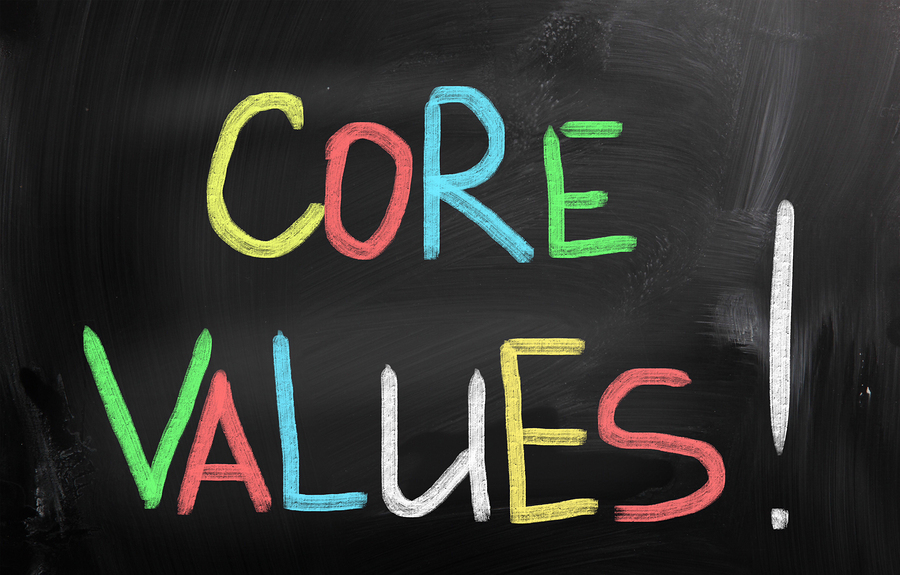
I recently had the chance to hear Stephen M.R. Covey talk about the impact that the lack of trust has on all of us, and I realized something: there is another layer of underlying behavior that impacts our ability to live by our values. Trust and values actually work hand in hand to create a strong company.
As I listened, I realized that the Four Cores of Credibility™ for self trust, as defined in Stephen’s book The Speed of Trust, align very closely to our own corporate values. When we practice our values, we build trust with each other and with our customers—and the trust we build makes our values even stronger.
Covey’s first two cores of credibility deal with character—they are Integrity and Intent. Integrity is about making and keeping commitments. Intent focuses on how motives and agenda drive behaviors. The second two cores deal with competence—they are Capabilities and Results. Capabilities are talents, attitudes, skills, and knowledge. Results are past performance, present performance, and potential future performance.
Our prioritized values at The Ken Blanchard Companies are:
- Ethical Behavior—doing the right thing.
- Relationships—developing mutual trust and respect.
- Success—operating a profitable and well-run organization.
- Learning—always growing, inquiring, and developing.
Our first two values deal with character and the last two deal with competence, similar to Covey’s cores of credibility for self trust.
Our first value, Ethical Behavior, ties in directly with Covey’s element of Integrity. To most people, integrity means honesty. This value is reinforced by what we call our “Ethics Check.” When in doubt about whether something is ethical, answer these three questions: Is it legal? Is it fair? Would you be proud to see your actions reported in the news?
Our second value, Relationships, is about treating people with respect—very similar to Covey’s element of Intent. If your intentions are good, you are likely to build mutually beneficial relationships.
Our third value of Success ties closely to Covey’s element of Results. Success and results are measures of financial achievement as well as being indications of the development of personal relationships, processes, products, and services.
Our fourth value, Learning, relates to Covey’s element of Capabilities. Particularly in today’s changing economic environment, it is essential to keep learning new techniques and building skills.
According to Covey, trust always affects two outcomes—speed and cost. When trust goes down, speed goes down and costs go up: consider the time and cost of airport security after 9/11. Similarly, the way values are applied can impact trust. If values drive consistent decisions and behaviors, trust goes up. But if values are just some forgotten document posted on a wall and not followed, trust goes down.
Values and trust are profound, necessary principles when they occur individually. When combined, they become far more powerful—and can create a huge competitive advantage for any organization. I’m not sure you can have one without the other—what do you think? I’d love to hear your stories.
